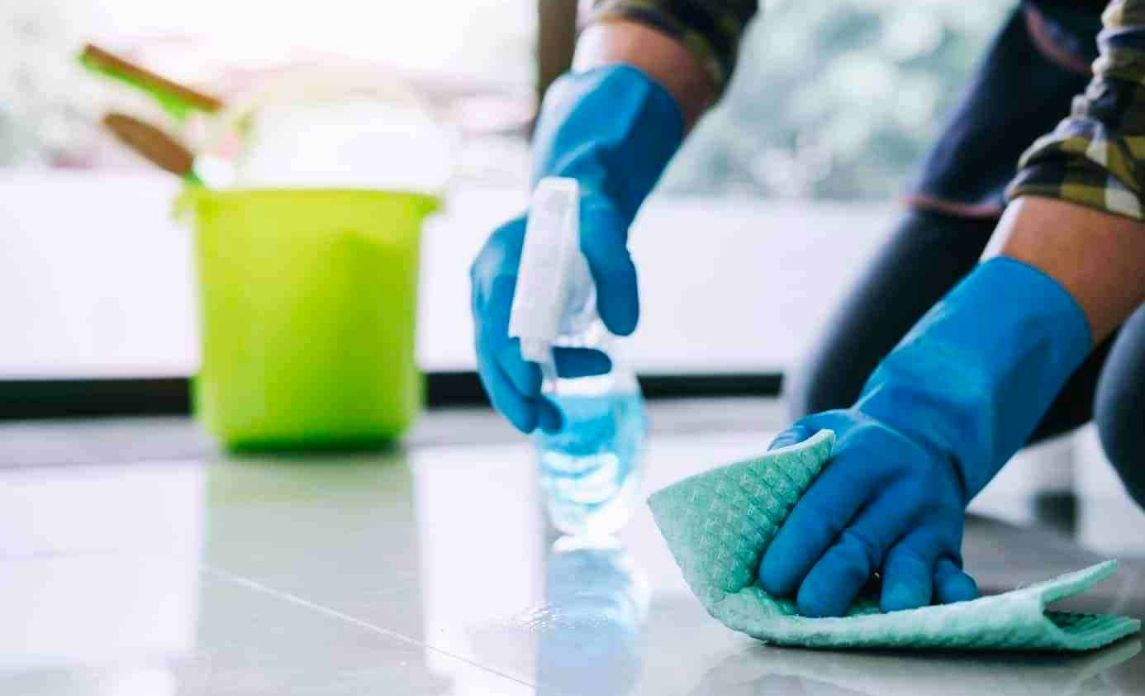Our workplaces, homes, schools and public spaces are kept clean to protect our health. It is essential for removing pathogens and allergens from surfaces, to prevent illness and the spread of viruses. In recent times, people have become much more aware that the chemicals used as ingredients in known cleaning products carry risks of their own.
Some cleaning products contain chemicals that are irritants to human skin and eyes, and at worst can cause asthma and other serious respiratory issues, or worse, even cancers.
Cleaning supplies and our health
Most traditional cleaning products contain components that are potentially harmful to humans. Most commonly, these can irritate the skin on contact, or irritate the eyes and throat and cause headaches from the inhalation of lingering fumes.
Regulations on the use of harmful chemicals vary between different countries and industries. It is often the case that the health regulations cannot keep up with the rapid development and use of new synthetic chemicals and compounds, and it can be hard to know if what we are using is actually safe.
These potentially harmful chemicals can be found in all types of household cleaners, including:
- Carpet and furniture cleaners – Some products contain toxic fumes, particularly naphthalene, which is a known carcinogen and are especially dangerous to children.
- Oven cleaners – They may contain many chemicals that can be harmful to human health when inhaled, including butane, monoethanolamine, diethylene glycol monobutyl ether, sodium hydroxide, or diethanolamine.
- Aerosol sprays – Aerosol sprays may also be manufactured using chemicals like formaldehyde or xylene, which can be harmful in the body for adults, children, and pets.
- Chlorine bleach – This can cause lung irritation when mixed with other cleaning products. Exposure could also contribute to cancer, for instance, dioxin.
- Ammonia products
- Dish wash and clothes detergents
- Floor and wood furniture polishes
- Products for combating mould and mildew
The most important thing to note about household cleaners is the danger of mixing bleach-containing products with ammonia-containing products. Combining these two products creates harmful gases that can cause serious lung irritations and breathing problems, and could be fatal. It is thought that exposure to such gases can contribute to the development of some cancers. Dioxin is a gas known to be released from chlorine bleach and is also a known carcinogen. This is why combining such products should be avoided at all costs, and if you are cleaning with strong products such as bleach or ammonia, the area needs to be well ventilated.
Cleaning products and cancer?
A household cleaning product study released in 2010 established a potential link between carcinogenic cleaning products (including methylene chloride) and breast cancer. This substantial study included over 780 women from the United States who were diagnosed with breast cancer between 1988 and 1995. The study found an association between women who used large amounts of cleaning products and a higher risk of developing breast cancer.
Cancer research often looks at household cleaning and hygiene products, as they are known to contain ingredients that can cause cancer in the mammary glands. For example, methylene chloride is common in fabric cleaners and nitrobenzene is often found in soap products. Such chemicals are widely used and have been found in human urine and blood samples during other research. These chemicals are known to cause abnormal mammary gland development in rats, and evidence suggests that exposure can also contribute to breast cancer in humans.
Air fresheners and odour neutralisers also contain harmful substances, which is alarming considering the number of people who use automatic air fresheners inside their homes every day. Some air freshener products contain terpenes, which reacts with background ozone in the air to produce formaldehyde. Formaldehyde is a known cancer-causing substance in humans and animals and has been scientifically linked to air freshener products.
The products we use outside in our gardens and on our lawns can also be bad for our health. Pesticides and herbicides contain certain ingredients that can make us sick and can also cause harm to pets or neighbourhood animals. When using such products it’s very important to wear hand and eye protection, and keep children and animals away from the treated area for a few days afterwards. All weed and bug killers come with warnings and instructions for proper use, so be sure the read them carefully and follow them to the letter!
Keeping safe from harmful products
The first good habit to develop is to be fond of reading labels. Many people now make a conscious effort to use ‘green’ or ‘natural’ cleaning products, but the reality is that these products might not be much safer than traditional ones. This is because what counts as a ‘natural’ product is not clearly defined or regulated, and some companies will be dishonest in their packaging and marketing just to get people to buy their products.
Therefore, it’s very important that you know exactly what is in the bottle you are buying. Check the ingredients lists and be vigilant – only use products in your home that are certified and safe to use for cleaning. A good place to start is the Environmental Choice New Zealand (ECNZ) list of certified eco-friendly cleaners and detergents. As well as being safer for the planet, these products are safer for humans and animals.
The Crewcare difference
Crewcare cares about the health of people and also the planet. As well as adhering to our environmental sustainability policy, our core cleaning products are all ECNZ certified. Our services including commercial cleaning, carpet and upholstery cleaning, window cleaning, and hard floor cleaning are also accredited by ECNZ.


